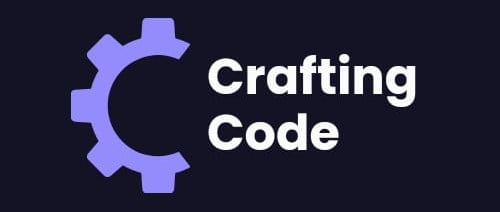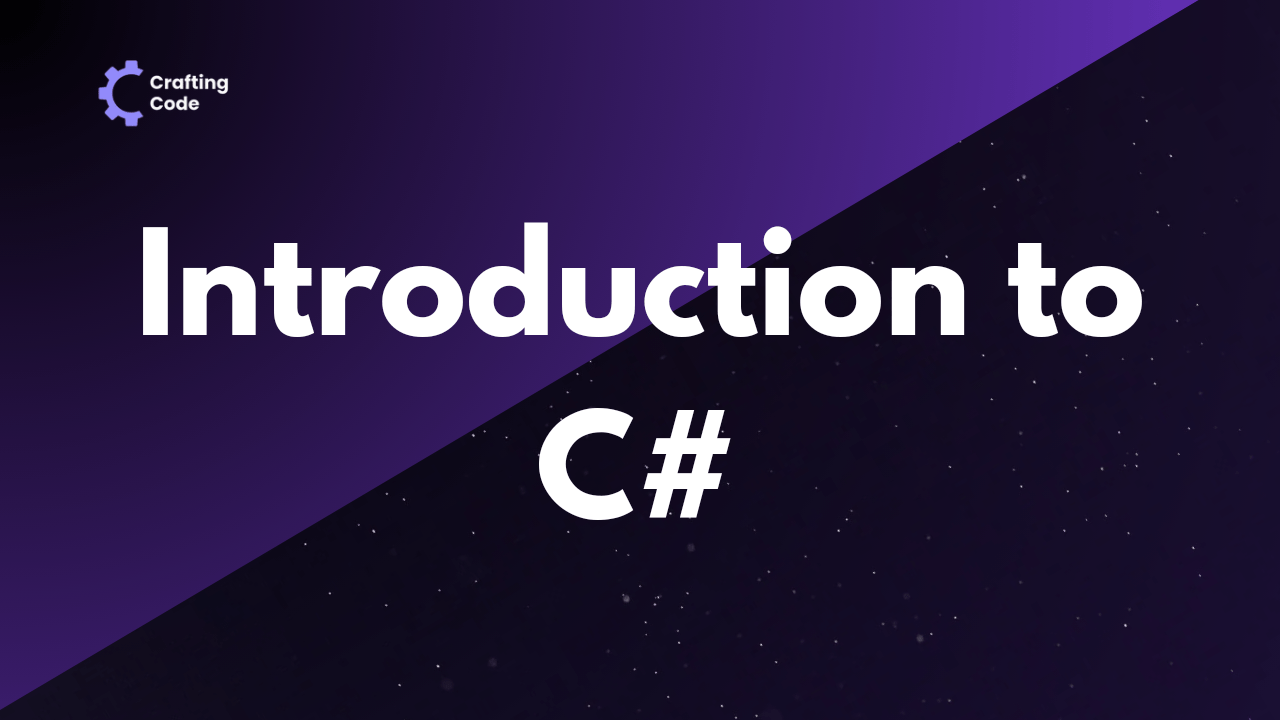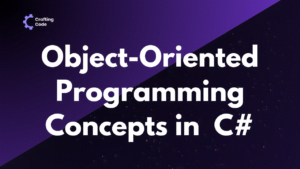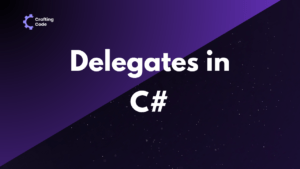C# (pronounced as “C sharp”) is a powerful, versatile programming language developed by Microsoft within the .NET framework. Since its inception in the early 2000s, C# has steadily ascended to become a cornerstone in modern software development, revered for its flexibility, robustness, and extensive applicability across various domains.
So, lets start the Introduction to C#
Significance of C# in Programming
In the programming languages, C# holds a prominent position as an object-oriented language known for its efficiency and ease of use. Its significance is multifaceted:
- Versatility: C# offers a versatile ecosystem, supporting different programming paradigms and facilitating the creation of a wide array of applications.
- Integration with .NET Framework: As an integral part of the .NET framework, C# enjoys seamless integration with other Microsoft technologies, enabling developers to craft comprehensive and scalable solutions.
- Platform Independence: C# is renowned for its ability to create applications that can run on various platforms, thanks to frameworks like Xamarin and .NET Core.
Relevance in Software Development Landscape
C# has secured its place among the most popular programming languages, consistently ranking high in usage and demand. Its relevance manifests in several ways:
- Wide Industry Adoption: From enterprise-level applications to game development and web services, C# finds extensive use across diverse industries, including finance, gaming, healthcare, and more.
- Strong Community Support: The C# community is vibrant and active, providing a rich pool of resources, libraries, and frameworks, fostering innovation and growth within the language.
- Scalability and Performance: C# offers a perfect balance between performance and scalability, making it a preferred choice for developing high-performance applications.
- Continuous Evolution: Microsoft regularly updates and enhances C#, introducing new features and improvements, ensuring its relevance in a rapidly evolving technological landscape.
What is C#?
Origins and Development by Microsoft
C#, has emerged from Microsoft in the early 2000s. It was conceptualized and developed by Anders Hejlsberg and his team as part of the Microsoft .NET initiative. The language was designed with the intention of combining the power of C and C++ with the simplicity and ease of use of Visual Basic. It was initially released in 2002 as part of the .NET framework.
C# as an Object-Oriented Programming Language
C# is classified as an object-oriented programming (OOP) language. This paradigm centers around the concept of objects, encapsulating data and methods that manipulate that data within a single entity. In C#, everything is an object, promoting modularity, reusability, and clearer code organization.
Key Features and Functionalities of C#
- Type-Safety: C# is a statically-typed language, ensuring type-safety by checking data types at compile-time, reducing runtime errors and enhancing code reliability.
- Scalability: The language supports scalable development, allowing for the creation of small applications to large enterprise-level systems with ease.
- Versatility: C# exhibits versatility by supporting various programming paradigms, such as procedural, object-oriented, functional, and component-oriented programming.
- Integration with .NET Framework: C# seamlessly integrates with the .NET framework, offering access to a rich set of libraries and tools for building robust applications across different platforms.
- Automatic Garbage Collection: C# incorporates automatic memory management through garbage collection, relieving developers from managing memory manually and reducing memory-related bugs.
- LINQ (Language Integrated Query): This feature allows developers to query data from various sources using a unified syntax, making data manipulation and retrieval more convenient.
- Asynchronous Programming: C# supports asynchronous programming using async/await keywords, enabling the creation of responsive and efficient applications.
What is C# used for?
Some of the primary uses and domains where C# is commonly employed include:
1. Software Development:
- Desktop Applications: C# is extensively used for building Windows-based desktop applications. It offers a rich set of libraries and tools through the .NET framework, enabling developers to create intuitive and feature-rich applications.
- Web Development: C# is employed in web development through frameworks like ASP.NET. It allows developers to build dynamic and scalable web applications and services.
- Mobile Applications: With frameworks like Xamarin, C# enables cross-platform mobile app development, allowing developers to create apps for iOS, Android, and Windows using a single codebase.
2. Game Development:
- C# is widely used in the gaming industry, particularly with the Unity game engine. It serves as the primary scripting language for developing video games across various platforms, offering robustness and efficiency in game development.
3. Enterprise Applications:
- Many enterprises leverage C# for developing enterprise-level applications and systems. Its integration with the .NET framework provides tools and resources for building scalable and secure solutions.
4. Cloud Services:
- C# is utilized in cloud computing and services, contributing to the development of cloud-based applications and services using platforms like Microsoft Azure.
5. Internet of Things (IoT):
- C# is finding increased usage in IoT development, enabling the creation of applications and solutions for connected devices and smart systems.
6. Scientific and Research Applications:
- In scientific computing and research, C# is employed for data analysis, simulations, and other computational tasks due to its performance and flexibility.
7. Tools and Utilities:
- C# is used to create various tools, utilities, and frameworks that facilitate development processes, such as build tools, testing frameworks, and more.
Basic Syntax and Structure of C#
Overview of Basic Syntax
C# syntax follows a structure that comprises elements such as:
- Comments: Comments in C# are used for explanatory notes and are ignored by the compiler. They can be single-line (
//) or multi-line (/* */) comments. - Namespaces: Namespaces are used to organize code into logical groups. They prevent naming conflicts and allow access to classes, methods, and other resources.
- Keywords: C# has reserved keywords that cannot be used as identifiers. These keywords have specific meanings and functionalities within the language.
- Variables and Data Types: Variables in C# are containers for storing data. They have data types (e.g., int, float, string) that define the type of data they can hold.
- Control Structures: These structures determine the flow of program execution. Common control structures include if-else statements, loops (for, while, do-while), switch-case statements, etc.
Structure of a Simple C# Program
A simple C# program typically consists of the following components:
- Namespace Declaration: Programs usually begin with namespace declarations to organize code into logical groups. For instance:
using System;
namespace MyNamespace {
// Code here
}
- Class Declaration: A class is a blueprint for creating objects. It encapsulates data and methods. A basic class structure looks like this:
namespace MyNamespace {
class MyClass {
// Variables
int myNumber;
// Methods
void MyMethod() {
// Code here
}
}
}- Main Method: In C#, execution begins with the
Main()method. This method serves as the entry point for the program.
namespace MyNamespace {
class Program {
static void Main(string[] args) {
// Code here
}
}
}- Variables and Data Types: Declaration and usage of variables with specific data types.
int myInteger = 10;
float myFloat = 3.14f;
string myString = "Hello, C#!";- Control Structures: Utilization of control structures for decision-making and looping.
if (condition) {
// Code if condition is true
} else {
// Code if condition is false
}
for (int i = 0; i < 5; i++) {
// Code to be repeated
}C# stands as a versatile and powerful programming language developed by Microsoft. With its roots in object-oriented programming, C# offers a robust framework and extensive functionalities, making it a preferred choice for various applications across industries. Its emphasis on type-safety, scalability, and integration with the .NET framework underscores its relevance in today’s software development landscape.
For more reference: Visit Here




